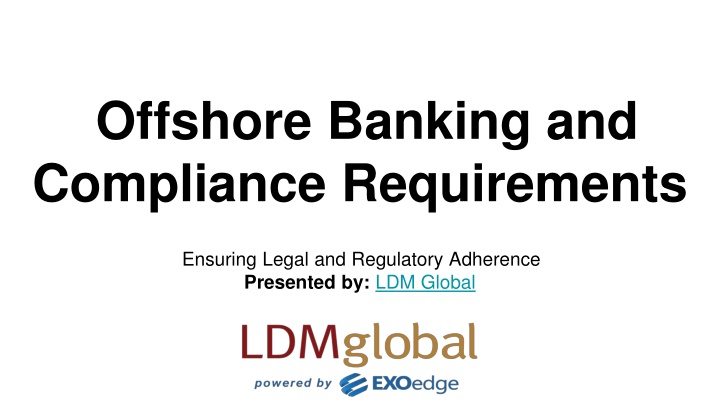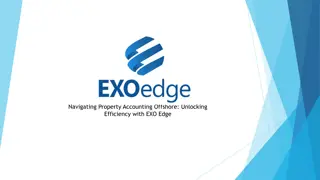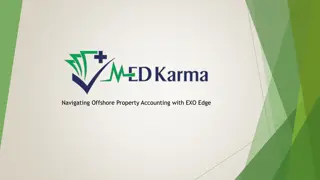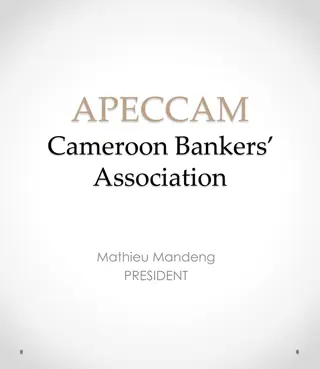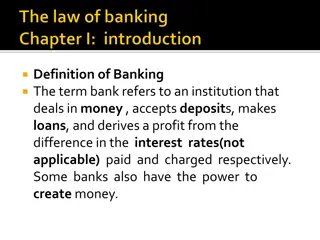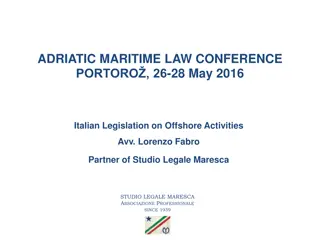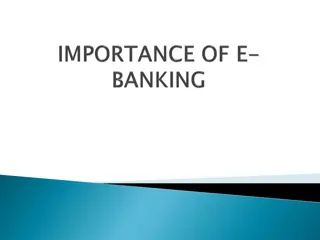_Offshore Banking and Compliance Requirements
Offshore banking allows individuals and businesses to hold accounts in foreign jurisdictions, offering benefits like privacy, asset protection, and potential tax advantages. However, strict compliance regulations govern these banks to prevent financi
Download Presentation

Please find below an Image/Link to download the presentation.
The content on the website is provided AS IS for your information and personal use only. It may not be sold, licensed, or shared on other websites without obtaining consent from the author.If you encounter any issues during the download, it is possible that the publisher has removed the file from their server.
You are allowed to download the files provided on this website for personal or commercial use, subject to the condition that they are used lawfully. All files are the property of their respective owners.
The content on the website is provided AS IS for your information and personal use only. It may not be sold, licensed, or shared on other websites without obtaining consent from the author.
E N D
Presentation Transcript
Offshore Banking and Compliance Requirements Ensuring Legal and Regulatory Adherence Presented by: LDM Global
Introduction to Offshore Banking Definition: Offshore banking refers to financial services provided by banks outside the depositor's home country. Common jurisdictions: Cayman Islands, Switzerland, Singapore, etc. Benefits: Privacy & confidentiality Asset protection Tax advantages (in some cases)
Key Compliance Requirements Know Your Customer (KYC): Banks must verify customer identity & source of funds. Anti-Money Laundering (AML): Compliance with FATF (Financial Action Task Force) guidelines. FATCA (Foreign Account Tax Compliance Act): U.S. law requiring foreign banks to report U.S. account holders. CRS (Common Reporting Standard): Global standard for tax transparency and information exchange.
Challenges & Best Practices Challenges: Strict regulatory scrutiny Risk of financial penalties for non-compliance Increased reporting obligations Best Practices: Partner with experienced legal & compliance advisors Regular audits & risk assessments Adopt advanced technology for KYC & AML compliance
